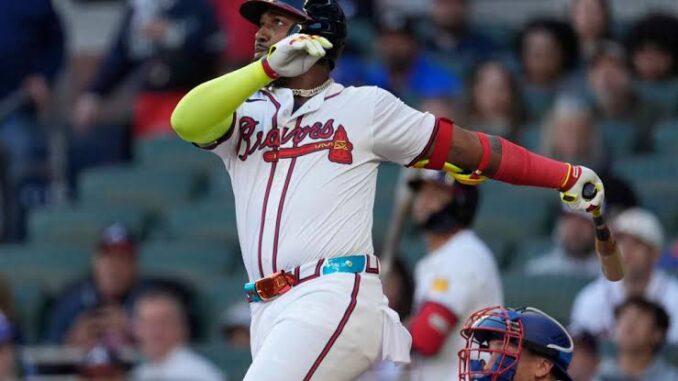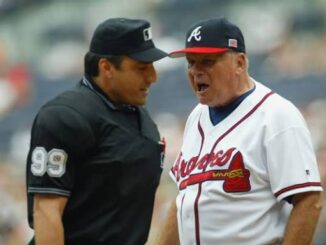
In a stunning twist of Major League Baseball free‑agency maneuvers, Marcell Ozuna has officially inked a four‑year contract with the New York Mets, bringing an end to his tenure with the Atlanta Braves. While details of the deal—including financial terms and clauses—are still emerging, this move symbolizes a major shift in both Ozuna’s career and the strategic direction of the Braves organization.
—
From Atlanta to New York: A Changing Landscape
For several seasons, Ozuna had established himself as a key presence in Atlanta’s lineup—first as a slugger, then as a veteran leader. His homers and run production played a central role in the Braves’ offense, and his presence offered both power and depth. In 2024 alone, he posted a .302 batting average with 39 home runs and 104 RBIs, finishing among the National League’s top hitters.
However, cracks in the long‑term fit had begun to emerge. The Braves signaled a desire to retool for 2026 and beyond, shifting focus toward younger players and sustainable flexibility. Ozuna’s status as a free agent and his potential trade value made him a likely candidate for change.
Sources indicate that in the months leading up to this move, Ozuna himself was open to change. Speculation at the trade deadline suggested he could put himself in play, possibly even waiving certain veto rights to facilitate a trade. That openness may have opened the door for the Mets’ offer and the Braves’ willingness to step aside.
—
Contract Expectations & Impacts
While the Mets and Ozuna’s representatives have not yet revealed all the details, observers expect the contract to include:
A multi‑year guarantee (most likely four years), with annual salaries that reflect Ozuna’s market value
Possibly option years or buyout clauses to balance risk for both parties
Incentives tied to plate appearances, home runs, or roster status
Under his previous contract with Atlanta, Ozuna was earning an average of around $16.25 million per year in a deal that included four guaranteed years plus options/buyouts. The Mets, in taking this risk, are signaling that they believe he still has premium value—as a middle-of-the-order bat who can stoke offense and fan appeal.
For the Braves, the departure means relieving future payroll burdens, opening roster slots, and prioritizing the next wave of talent. It also reflects a shift in philosophy: rather than doubling down on veteran contracts, the franchise appears to be privileging positional flexibility and long-term cap planning.
—
What This Means for Ozuna—and the Mets
For Ozuna
A fresh start and a chance to prove his value on a new platform
The opportunity to play in a large market with renewed spotlight and expectations
A longer runway to rebuild or extend his legacy
For the Mets
The acquisition could bolster their offensive core with a proven power hitter
It sends a message of ambition: New York isn’t waiting, it’s competing
It challenges the Mets to manage lineup integration, clubhouse dynamics, and salary structure—especially in a crowded roster environment

Be the first to comment